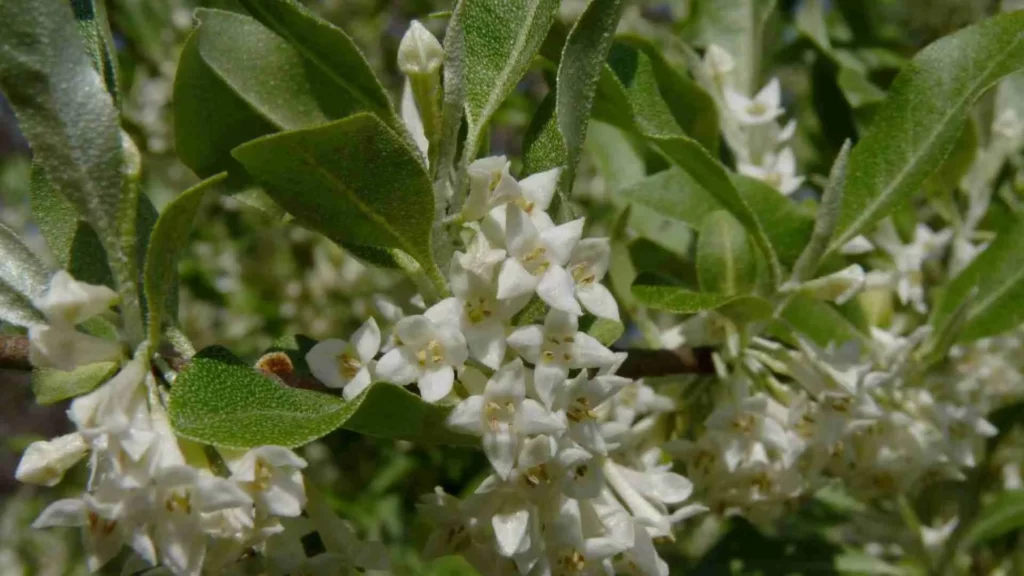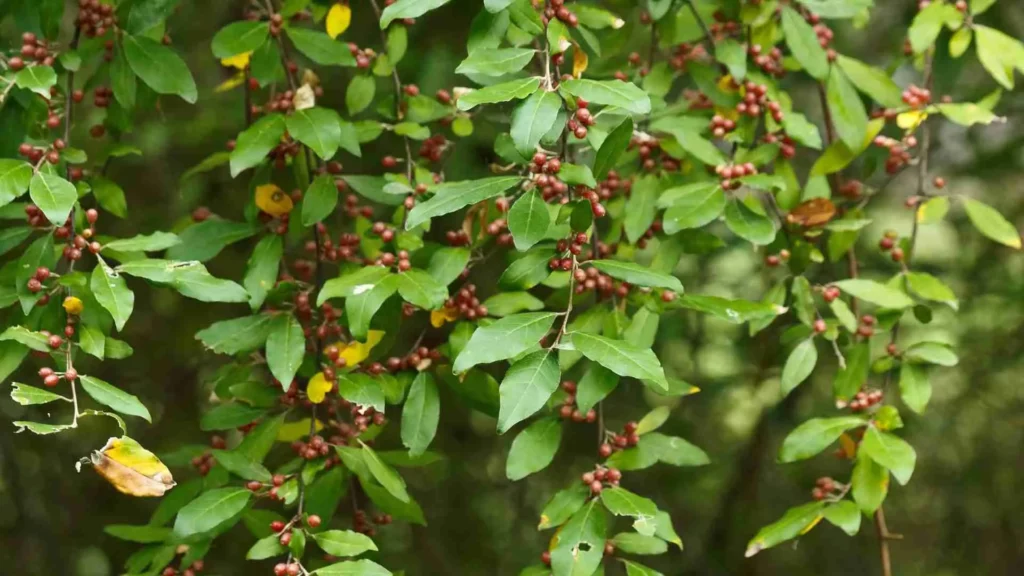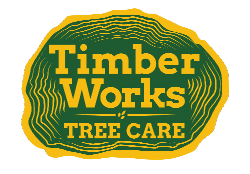Olive Brush Removal
Olive Brush Removal Services at Timber Works
Olive Brush Removal
Of all tree and landscaping service options, why should olive brush removal be a priority for property owners? How does it differ from integrated vegetation management and brush mulching services? The answers lie in the autumn olive’s environmental impact, ability to spread, and the procedures necessary for its eradication.
What is Olive Brush? What are its Dangers?
The autumn olive tree and autumn olive bush (Elaeagnus umbellata) are invasive species in North America. Brought from Asia during the 19th century, the tree and shrub were popular ornamental plants for landscaping. They also provided erosion control and plentiful fruit. That fruit, which ripens from silvery to red, supported wildlife and supplied people with ingredients for jam.
During the 1950s, the Soil Conservation Service planted autumn olive trees to combat erosion. Yet during the decades between then and now, natural scientists discovered the harmful effects and virility of Elaeagnus umbellata:
- One plant can reach 20 feet high and 30 feet wide—multiple create dense thickets
- Outcompetes native species and reduces biodiversity
- Significantly undermine a pasture’s productivity when present
- Each plant changes the chemistry of the surrounding soil (a process called allelopathy)
- Attracts birds with its fruit, which then spread the plants across vast areas
- Can tolerate salinity, extreme pH, and heavy metals (therefore, survives near roadsides, mine spoils, and other postindustrial sites)
- Can regrow from a cut stem—eradication requires root removal
- May spread further and faster due to climate change
How Olive Brush Removal Differs from Other Services

While cutting, burning, and other typical tree and shrub removal measures usually prevent new growths, these steps can help olive trees and bushes spread. The invaders thus require specific removal techniques, which Timber Works Tree Care specialists offer to clients throughout Northern Virginia.
Our team can treat areas with minimal invasion, seedlings, and young-growth plants by simply pulling olive brush out of the ground by their stems. The plants are easy to manage early on, and tree care specialists will recognize their distinctive leaves, roots, and flowers. Bush hogging and grubbing can kill young olive brush if done during spring when the plants’ stored sugars produce new shoots and leaves, though weather and growing conditions can be fickle.
Herbicidal Olive Brush Treatments
Mature autumn olive trees and shrubs require herbicidal treatment, particularly those that cannot be uprooted. As with bush hogging and cutting, herbicides require specific timing, necessitating professional application. Yet systemic chemicals (which circulate the plant) work well in late spring, while other mixtures require summertime treatment. Checking for olive brush growth can become part of your spring tree care checklist.
Several herbicide applications during successive seasons are sometimes necessary to wipe out olive brush thickets. Yet careful application by an expert team can wear down the invasive plant and allow you to reclaim that property for trees and shrubs to coexist without killing other plants. Moreover, they can do routine checks for new growth every year—birds can spread seeds, which enables olive brush to return after clearing.
Effective Olive Brush Removal Services in Northern Virginia
Repelling autumn olive tree and shrub growth from your property entails vigilance and professional treatment. Therefore, schedule olive brush removal through Timber Works Tree Care to ensure positive results!

About Us
Here at Timber Works Tree Care, we care about our customers, your trees, and your property. Each job is a chance to show you our great attitudes, strong work ethic, and a desire to meet and exceed every customer’s expectations!
We treat every client and co-worker with respect and professionalism Learn more.
24/7 EMERGENCY TREE REMOVAL
NEED TREE SERVICES?
Why Choose Timber Works for your Tree Services?
Certified Arborist on every job site

100’s of exclusively 5 star reviews

2021 Best of Warren County

Fully Licensed and Insured with Workmans Comp

SWaM Certified
Professional. Affordable. Reliable.
We are professional members of industry-leading tree care associations who deliver customer-first service. Click an icon to see our associations, view our profile or read our reviews.
Client Reviews






The removal team was safety oriented, fast, had great communication with all my neighbors and did an amazing job. They took care to do as little damage as possible to my neighbor’s yard, cleaned up more that I expected and was done and out before we knew it.
I highly recommend calling them for you tree removal and other tree care needs. Their prices for 8 trees, that were 60’ in height, totaled less than another company’s quote for just two trees. Adding to this, all our emails and calls were answered through out the whole process in less than 48 hours.
To everyone at Timber Works; thank you so much. I could not be happier with the work done today.



Jack Donohue was very attentive to all of our needs. He took the time to listen to all questions and thoroughly addressed them to our satisfaction.
I am very pleased with their work and highly recommend their services.
Ready to Get Started?
Timber Works Tree Care is here to serve you and your property with proven expertise and friendly service.
Get Reliable, Affordable Tree Service
Each job is a chance to show you our great attitudes, strong work ethic, and a desire to exceed your expectations. Send us a message through the form, or click the button below to contact us today!
Timber Works Office Locations
Front Royal
404 Fairground Rd, Ste A Front Royal, VA 22630
Marshall
8452 Renalds Ave Ste 210, Marshall, VA 20115 View All Locations
"*" indicates required fields











